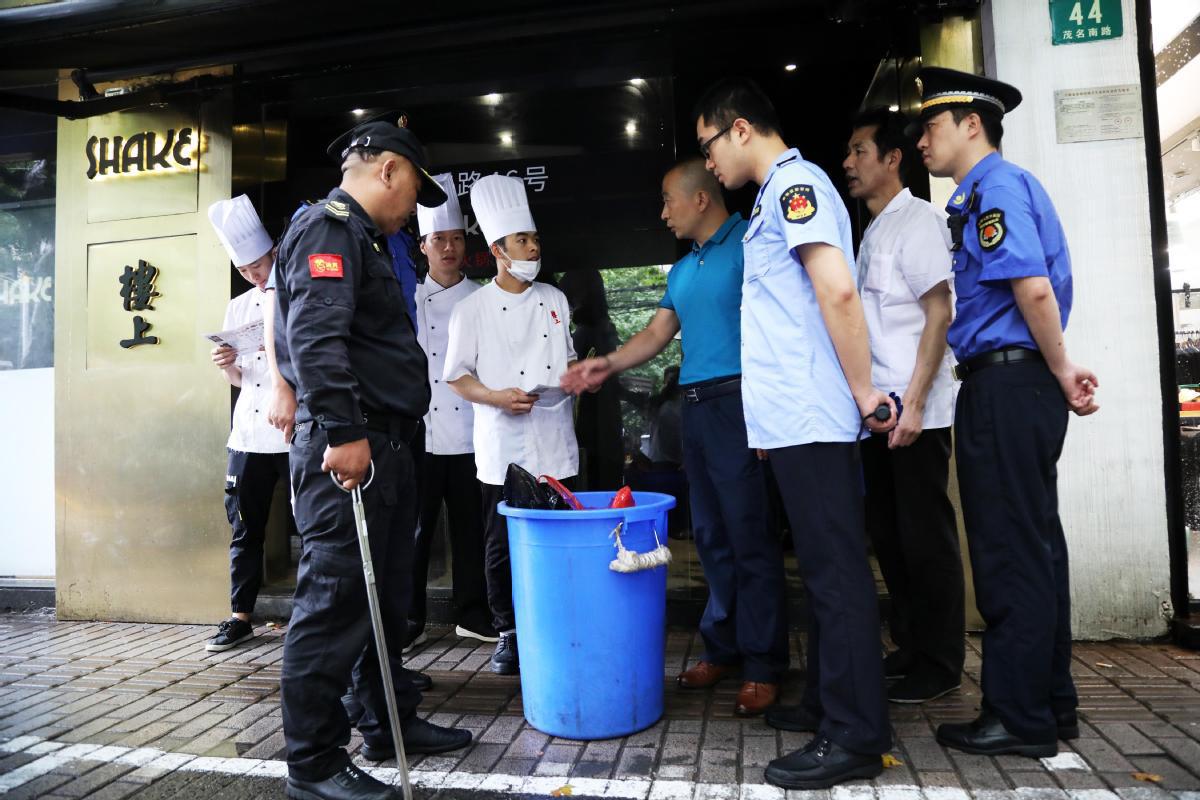Shanghai malls, offices register worst waste sorting performance
By Xing Yi in Shanghai | China Daily | Updated: 2019-08-02 09:15

Shopping malls and office buildings in Shanghai have so far registered the worst performance in waste sorting since the city enacted its new regulations on domestic waste sorting on July 1, said the city's urban management and law enforcement authorities.
During the first month of the regulations, 18,100 inspections targeting household waste covered nearly 35,000 units in residential complexes, restaurants, hotels, malls, office buildings, hospitals, schools and industrial parks, the Shanghai Urban Management and Law Enforcement Bureau said on Wednesday.
Rectification notices were issued in 8,655 cases, 2,293 of which involved individuals. Fines were imposed in 872 cases, 74 of them on individuals.
Shopping malls and office buildings reported the highest household waste-sorting irregularities, with an incidence standing at 50.9 percent, followed by catering businesses and enterprises at 26.5 percent, the bureau reported.
The incidence of irregularities at industrial, scientific and innovation parks was 24.3 percent, and it was 23.4 percent for hotels. For schools and training institutions, it was 17.7 percent, with 13.8 percent for residential complexes and 10.9 percent for hospitals, according to the bureau.
While shopping malls and office buildings still greatly lag behind in abiding by the regulations, great improvement was observed in late July, when the incidence of garbage-sorting irregularities at those venues dropped to 39.8 percent, down 16.8 percent from early and mid-July, according to the bureau.
Schools and training institutions had the largest increase of incidence between early and late July, reaching 11 percent, the bureau said.
The bureau has also inspected 490 trash transport operations and found 68 violations involving 20 trash transport companies. Their main problem appeared to be mixed transporting of different categories of trash, accounting for 79.4 percent of cases, while other minor problems included a lack of clear labeling and a failure to install monitoring systems on different garbage trucks.
Despite the problems, the citywide effort to enforce the regulations has paid off. The Shanghai Landscaping and City Appearance Administrative Bureau said on Wednesday that the city has sorted out a daily average of 8,200 metric tons of kitchen waste and collected an average of 4,400 tons of recyclables every day in July, up 15.1 percent and 10 percent respectively from June.
The amount of residual waste, on the other hand, has declined from 19,370 tons per day in June to 17,100 tons per day in July, down 11.7 percent.
The authorities said inspections in the coming months will be beefed up, especially in units reporting the worst performances in household waste sorting.
Inspections targeting residents and companies randomly dumping or stacking trash in public areas will also be enhanced, the bureau said. Checks on the treatment of domestic garbage will be tightened to crack down on mixed compression and treatment of already-sorted garbage, according to the bureau.
People in Shanghai can be fined up to 200 yuan ($29) under the new regulations if they fail to sort garbage properly and refuse to fix the problem. Enterprises can be fined up to 50,000 yuan for such violations.























